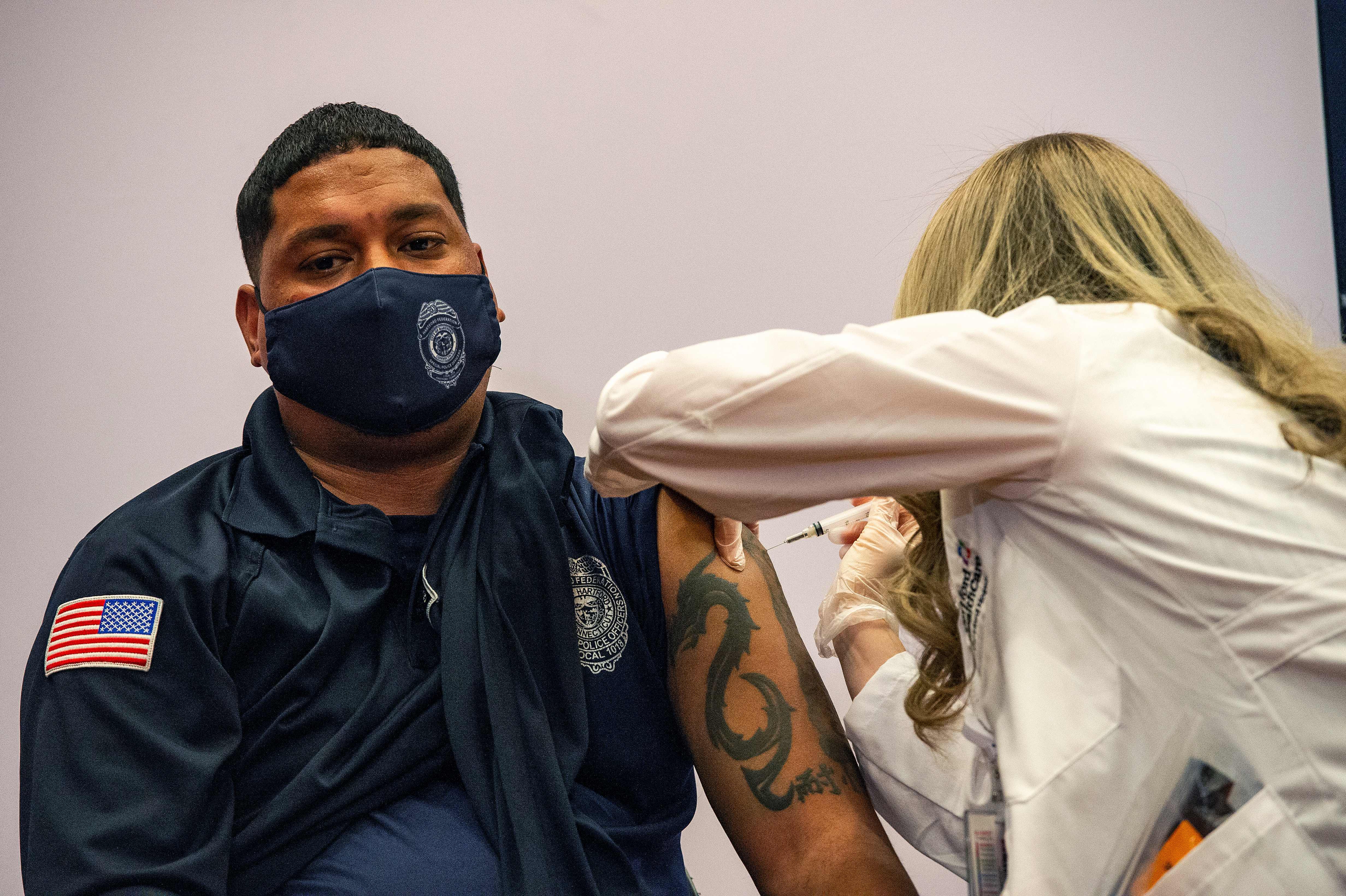
Pharmacist Madeline Acquilano inoculates public school safety officer Victor Rodriguez with the Johnson & Johnson Covid-19 vaccine at Hartford Hospital in Hartford, Connecticut on March 3, 2021.
Joseph Precious | AFP | Getty Images
The Centers for Disease Control and Prevention on Monday released new guidelines for people fully vaccinated against Covid-19, a long-awaited move as the nation tries to return to normalcy after nearly a year of restrictions due to the pandemic.
“There are a number of activities that fully vaccinated people can now resume in the privacy of their own homes. Everyone – even those who have been vaccinated – should continue with all risk mitigation strategies in public settings,” said CDC Director Dr. Rochelle Walensky in a statement.
According to the guidelines, fully vaccinated people can safely enter with other fully vaccinated people and some unvaccinated people without wearing masks or social distancing, according to the guidelines. A person is considered fully vaccinated two weeks after either a single injection of Johnson & Johnson’s newly authorized vaccine or two weeks after their second injection of Moderna’s or Pfizer’s two-dose regimens.
About 58.9 million people in the US have received at least one injection, of which 30.7 million people have received two doses, just over 9% of the country’s population, according to the CDC, which doesn’t break down which vaccine people have got.
People who are fully vaccinated can also visit unvaccinated people from a single household without wearing masks or social distancing, as long as they are at low risk of serious illness, the CDC says.
“For example, fully vaccinated grandparents can visit indoors with their unvaccinated healthy daughter and her healthy children without wearing masks or physical distance, provided none of the unvaccinated family members are at risk for severe COVID-19,” said the CDC guidelines.
Fully vaccinated people don’t need to be quarantined or tested for Covid-19 if exposed to someone with the virus, as long as they don’t show symptoms, the agency advises. However, if a vaccinated person starts to show symptoms, they should isolate themselves and be tested for Covid-19.
There are still some activities that fully vaccinated people cannot yet do, the CDC warns. Vaccinated Americans should still avoid medium and large in-person gatherings, and they should also continue to wear face masks and social distances in public.
If a vaccinated person visits someone who is at risk for serious illness and has not been vaccinated, they should still wear a mask, maintain a distance of six feet, and try to get outside if possible, the agency says.
While a growing body of evidence suggests that people vaccinated against Covid-19 are less likely to transmit the disease to others, it is still unknown how long a person’s protection can last or the effectiveness of the injections against emerging Covid-19 variants, the CDC said in a statement.
“While the new guideline is a positive move, many more people will need to be fully vaccinated before everyone can stop taking most of the COVID-19 precautions,” the CDC said. “It is important that everyone continues to take important mitigation measures until then to protect the large number of people who remain unvaccinated.”